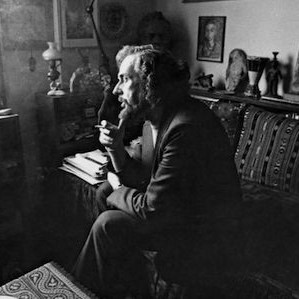Yannis Ritsos
Born: 1909
Twice nominated for the Nobel Prize, Ritsos won the Lenin Peace Prize, the former Soviet Union's highest literary honor, as well as numerous literary prizes from across Eastern Europe prior to his death in 1990. Because his writing was frequently political in nature, Ritsos endured periods of persecution from his political foes. One of his most celebrated works, the "Epitaphios," a lament inspired by the assassination of a worker in a large general strike in Salonica, was burned by the Metaxas dictatorship, along with other books, in a ceremony enacted in front of the Temple of Zeus in 1936. After World War II and the annihilation of Greece's National Resistance Movement—a Communist guerrilla organization that attempted to take over the country in a five-year civil war—Ritsos was exiled for four years to the islands of Lemnos, Makronisos, and Ayios Efstratios. His books were banned until 1954. In 1967, when army colonels staged a coup and took over Greece, Ritsos was again deported, then held under house arrest until 1970. His works were again banned. Many critics rank Ritsos' less political poems as his best work. George Economou, writing in the New York Times Book Review, stated that "in the short poems, most of which are not overtly political, Ritsos is full of surprises. He records, at times celebrates, the enigmatic, the irrational, the mysterious and invisible qualities of experience." Source
